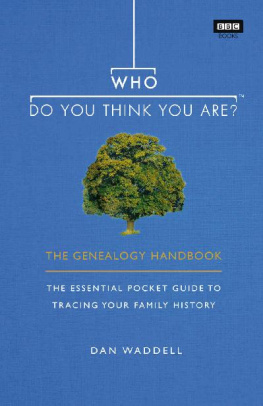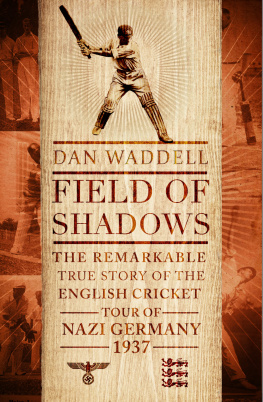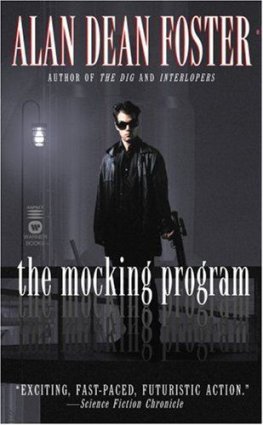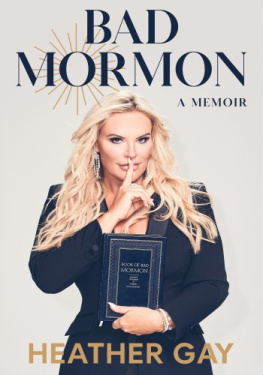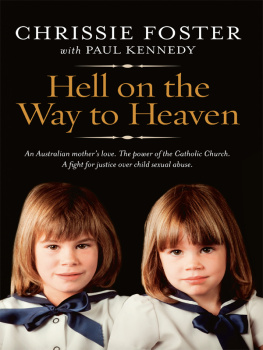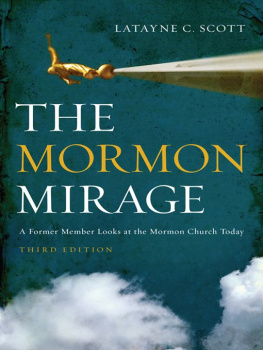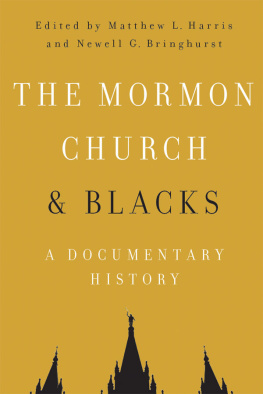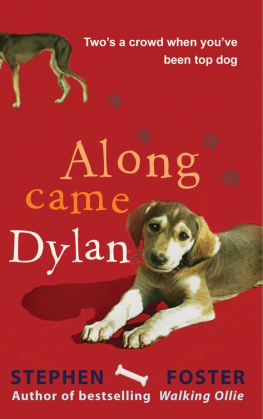For answering what were a lot of stupid questions about police, genealogical and genetic genealogical procedure, my humble thanks go to Neville Blackwood, Nick Barratt, Megan Smolenyak Smolenyak and Jim Wilson. Donald R. Snow at the Hyde Park Family History Centre helped point me in the right direction in finding some information about early records of the LDS. Carole Reeves did likewise when it came to trying to find out more about the treatments and conditions in mental hospitals of the 1940s and 1950s. Any mistakes are entirely my own.
For reading and editing the manuscript in its early stages -- and much, much more besides -- I would like to thank my agent, Araminta Whitley, and Lucy Cowie.
Thereafter, Stefanie Bierwerth, Daniela Rapp and Shan Morley Jones all made sure the finished entity was as good as it could possibly be. Thanks to you all.
The candle on the ledge guttered as it neared its end, shadows dancing on the wall. Beside her Sarah sensed the rhythmic rise and fall of her sisters' chests. Henrietta's and Emma's ability to fall asleep as soon as their heads lay on the pillow infuriated her, while she tossed and turned seeking sleep that took an age to arrive.
Not tonight, though. She lay rigid, pinned down beneath layers of blankets, not wanting to move and so drown out the muffled voices from the adjoining room.
Her future, her whole life was being discussed in there.
She could hear her mother, softly pleading, occasionally sobbing.
Her father's sonorous voice in response, calm and unyielding.
"I do not mean to disobey you,' she heard her mother say. 'But he is in his sixty-seventh year. Does that not seem wrong to you?'
The low rumble of his words was more difficult to decipher.
Sarah eased herself from under the weight of her covers and crept silently to the door, the breath from her nostrils frosting in the crisp night air. She shuddered. The September night was clear and cold but the undergarments beneath her nightclothes warded off the worst of the chill. She eased the door open and slipped into the dark hall.
The words were more audible out there.
'Sarah is only fourteen!'
'You were only fourteen, Annaleah, when your father, or the man who acted as your father, pledged you to me.' Sarah sensed her father's impatience. Her boldness had reaped its harvest many times.
Her mother choked back a sob. 'May the Lord forgive me, I must protest--'
'Enoughl' Silence.
Lord, no. Not Hesker? Sarah thought of his enormous stomach, bulging eyes, sagging, bewhiskered jowls and flabby wet lips, habitually moistened with a flicking pink tongue. There was a metallic taste in her mouth now, testament to her rising bile. She felt sick.
'The matter is agreed. I will hear of it no more.'
'But Orson . . .'
'Annaleah!' The voice was resolute, commanding.
She knew then that her mother's protest was at an end. A hot tear ran silently and slowly down her cheek. She retreated quickly back to her room before her father left for his. It had been a long time since he had favoured her mother's room as his place of rest.
At her bedside, she fell to her knees and buried her salt-wet face in her hands. The Lord was her only chance of reprieve.
'Our dear Heavenly Father, I thank thee for the blessings bestowed on my family and me. The food on the table, the bounty in the fields, the health of our livestock. The manner in which foseph junior was spared when plague-ridden in the summer and it seemed all hope was vanquished. I thank thee for those and many other blessings. I beg here for thy mercy. If it be according to thy will that I be wed to Hesker Pettibone, then I beseech thee to think again. I apologise for my insolence, but I request with all reverence and humility that I not be married to that disgusting fat old hog -- I seek thy forgiveness for that ungodly description. Should thou ignore my plea, so help me, Heavenly Father, I will not answer for the actions I henceforth take. Amen.'
As Sarah climbed back into bed, her ice-block fet source of heat, she heard the soft whimpers of her mother in the room next door. Strangely it gave her strength.
I would rather be cast into the fiery pit than live a life of quiet desperation and suffering, she thought.
Detective Chief Inspector Grant Foster emitted a weary sigh as he crouched over the woman's corpse, arc lights in the garden bathing them both in bright light, anticipating the first light of dawn. During his convalescence, human nature had not taken a turn for the better. He rose to standing, wincing slightly at the bolt of pain searing up his leg from the metal plate holding his right shin together, then shuddered as he felt a cold cough of wind on the back of his neck. He'd not worn a coat, assuming when he was called and told of a woman's murder at her house she would be found inside, and not outside on a small, slightly overgrown lawn.
The throat had been cut. The body was framed by a wide slick of blood. He looked around the garden. The fences at all three sides were high, giving a degree of privacy, though the upstairs windows of the properties on both sides would have had a partial view. Young professional couples lived either side and got home after dark.
Neither of them had seen the body. Still, to Foster it seemed the killer had taken a strange risk.
He returned to the house. The sitting room was neat and ordered, no signs of a struggle. Foster rubbed his face with his right hand. It was his first week back, early November. He'd insisted on being on call. The call had come that Tuesday morning at 4 a.m., four hours after the body had been discovered. He climbed into his old suit, realizing only then that he could fit his thumbs into the gap between his gut and the waistband, forcing him to dig out a belt and pull it to the tightest notch. It had been just over six months since he'd been tortured and beaten and saved only seconds from death. The thought of getting back on the job had kept him going during some long dark nights of the soul. During some nights, when the dreams were at their worst, Karl Hogg's hot breath still in his nostrils, the excruciating pain as both tibia and fibula snapped under the weight of Hogg's mallet, he'd thought this moment might never arrive.
But here he was; his first case back.
He had anticipated a gang killing, probably some hapless kid stabbed in the street in Shepherd's Bush or Kensal Rise. Instead he'd got this -- a woman lying dead in a garden, in a lavishly furnished Victorian terrace, on a quiet affluent street in Queen's Park, a middle-class ghetto between Kensal Green and Kilburn.
Detective Inspector Heather Jenkins walked into the sitting room with a scene of crime photographer at her shoulder. 'Mind if I. . .' he said, motioning towards the garden nervously.
'Fill your boots,' Foster said.
He turned to Heather. Her hair was scraped and tied back off her face and she looked pale and worn. Bad news, he thought.
'The victim's name is Katie Drake,' she said. 'Thirty seven years old. An actress. The neighbours two doors down found her. They had a set of keys. They were alerted by a friend of Katie's after she and her daughter failed to turn up at an ice-skating rink to celebrate the daughter's fourteenth birthday'
Foster felt a shudder of apprehension. And where's the daughter?'
'We don't know. She's missing'
Everything and everyone was gathered. The Met's murder squad and all its resources out en masse. Dogs, helicopters, hundreds of officers preparing to knock on doors, ready to shake down every paedophile and pervert in West London and beyond. All waiting for the onset of daylight before they got started. A cursory check of Katie Drake's body estimated she had been dead since the previous afternoon, perhaps as early as 2 p.m. Her daughter, Naomi, was last seen leaving school at 3.15 p.m. Her schoolbag was downstairs. She'd made it home. But then what? The signs weren't good. Find them in the first six hours or you're looking for a dead body. That was the mantra when it came to a missing child. Unless . . .


